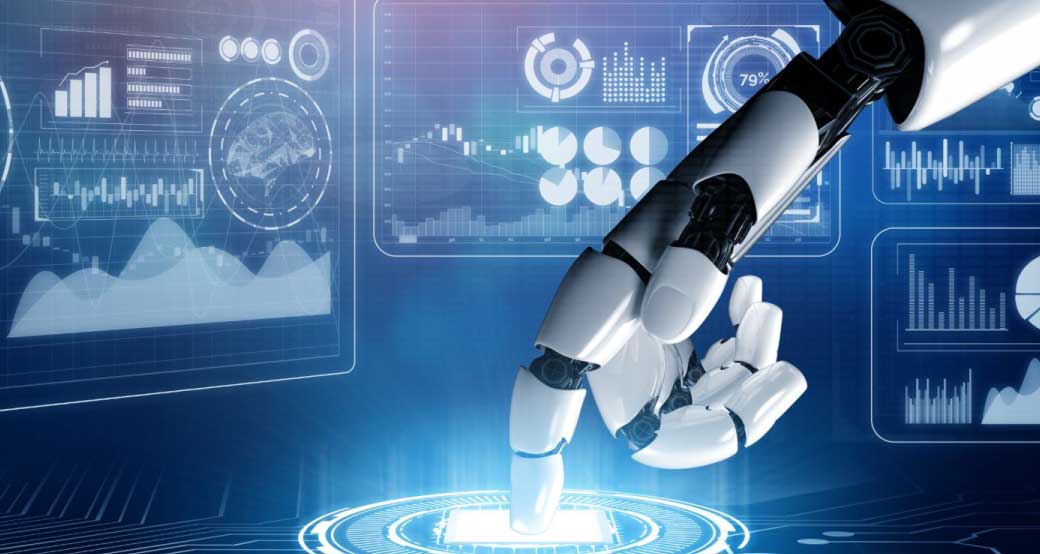1. Defining Artificial Intelligence
Artificial intelligence is the capability given to machines to accomplish tasks that are normally considered activities of human beings, wherein problem-solving, pattern recognition, understanding of language, and reasoning could be included. Compared to ordinary software, however, AI systems really learn from data and hence become better with time. AI has established itself as a compelling force in the manner through which we interface with technology, whether that be as simple as voice assistants or as complex as autonomous vehicles.
2. A Brief History of AI
It appears that AI is comparatively young in the landscape, but perhaps the AI started way back. The thoughts woke up in the 1950s, with some computer scientists, such as Alan Turing and John McCarthy, putting the question, “Can machines think?” The first experiments in developing chess games and basic problem-solving systems laid the foundation. However, AI development was very slow, owing to the underdeveloped computing facilities and infrastructure. It was in the 21st century that the stage was set for a mass explosion of AI, with enhanced machine learning techniques, big data, and fast processors.
3. Factors Leading to the Explosive Growth of AI
The sudden emergence of AI is therefore not a fortuitous event; specific key factors have been in operation:
Massive Data:
In the digital era, massive quantities of information are thrown in the way of any sort of training of AI algorithms.
Better Power:
Because of the cloud computing and GPUs, processing data has become way faster.
Advanced Algorithms:
From machine learning to deep learning, all these AI branches help with correct pattern recognition.
Money:
Corporations and national governments are pouring billions of dollars into AI R&D.
These factors came together to reduce the time taken for AI to find its way into the work culture of various
4. AI in Everyday Life
AI is now integrated into everyday life rather than being confined to labs. AI is used by smartphones to control virtual assistants like Siri and Google Assistant, unlock screens using facial recognition, and recommend tailored content. While e-commerce sites use artificial intelligence (AI) to suggest products, streaming platforms use user preferences to recommend shows. Apps for healthcare even monitor fitness and identify anomalies. Most of us engage with AI several times a day without even realizing it.
5. AI in Business and Industry
Businesses use artificial intelligence (AI) to boost customer satisfaction, cut expenses, and increase business efficiency. AI in finance facilitates algorithmic trading and fraud detection. AI is used in manufacturing to improve automation and perform predictive maintenance. AI is utilized in retail for tailored marketing and inventory control. Artificial intelligence is used in healthcare to predict how patients will do, help find new medicines, and understand medical images. It makes businesses work better and gives useful knowledge to companies around the world, which has changed the healthcare industry a lot.
6. The Role of Data in AI Development
AI is data-dependent. The more pertinent and good data is available, the better will be the learning and adaptation of AI systems. AI provides precious time and mental bandwidth by automating mundane chores like setting the thermostat, dimming the lights, preparing lists for groceries, and making a traffic-efficient plan for the evening. Organisations must maintain a fine balance with the collection of only that data very essential for AI to work, keeping user rights in mind. With an exponential rise in data, the value of data in shaping the next generation of AI will increase.
7. Opportunities AI Creates for Society
Artificial intelligence enables various new possibilities to emerge. The technology exists to address issues that were previously too difficult or demanding to handle.
The following are some examples:
Healthcare: AI creates individualised treatment plans while cutting down on diagnosis time.
Environment: Artificial intelligence models produce climate forecasts, which help optimize energy systems for better operational performance
Accessibility: Voice recognition software together with real-time translation technology allows people with disabilities to access better assistance.
8. Challenges and Ethical Concerns
The upcoming advancement of artificial intelligence seems to bring hope yet remains unpredictable in its path. The future will bring intelligent AI systems, which will transform healthcare delivery and educational environments and business operations and entertainment experiences. Scientists predict that natural language processing and robotics breakthroughs will generate human-like robotic communication systems. The future path of AI development will get determined by ongoing discussions about regulatory frameworks, data protection measures, and ethical standards. The development of AI needs active partnerships between government organizations and business entities and research institutions to establish proper growth management systems.
9. What Lies Ahead for AI?
Artificial intelligence has undergone tremendous advancement, but the experts cannot be so sure about its future development.. Healthcare, education, business, and entertainment sectors will experience AI application evolution into more intelligent systems. Natural language processing technology development together with robotics advancement will enable machines to conduct natural human-machine dialogues. Future AI system development will depend on how society solves its regulatory system conflicts, data protection rights disputes and moral boundary disagreements. The government, along with companies and research teams, needs to collaborate for proper AI development under responsible practices.
10. Conclusion
AI exists as a present reality that affects all aspects of human existence, including daily life and work activities and mental processes. The technology advancement depends on continuous research development for establishing its future worth. The path of AI shows a large number of obstacles, but the benefits become greater when organisations handle risks properly. People who study AI development will understand how to manage its growth properly. Humanity leads the advancement of AI to establish a technological alliance that will transform future human existence.




